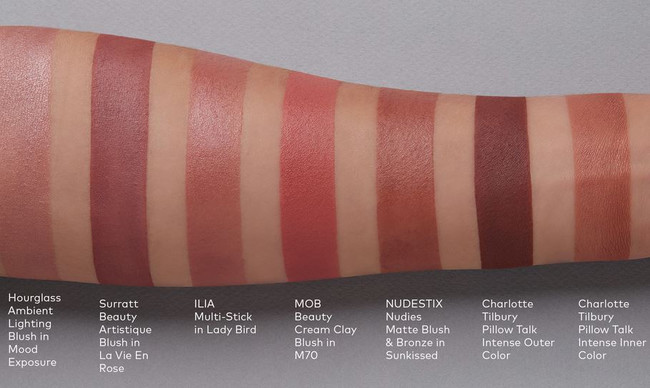The science behind popular beauty ingredients | |

| |
Beauty products are filled with various ingredients that promise to enhance our skin, hair, and overall appearance. But have you ever wondered about the science behind these ingredients? Understanding the role and benefits of popular beauty ingredients can help you make informed choices when selecting products for your skincare and beauty routines. In this article, we delve into the science behind some of the most popular beauty ingredients and their impact on our beauty and well-being. 1. The Power of Hyaluronic AcidHyaluronic acid is a naturally occurring substance in our skin that has the remarkable ability to retain moisture. It acts as a humectant, attracting and holding water molecules, resulting in improved hydration and plumpness. Hyaluronic acid is known for its ability to enhance skin elasticity, reduce the appearance of fine lines and wrinkles, and provide a smooth and supple complexion. It is a key ingredient in many moisturizers, serums, and facial fillers. 2. The Benefits of Vitamin CVitamin C, also known as ascorbic acid, is a potent antioxidant that offers a range of benefits for the skin. It helps protect the skin against free radicals, which are unstable molecules that can cause damage and premature aging. Vitamin C is also essential for collagen synthesis, promoting a firmer and more youthful complexion. Additionally, it can help brighten the skin, fade hyperpigmentation, and even out skin tone. Incorporating vitamin C into your skincare routine can result in a more radiant and rejuvenated appearance. 3. Retinol: The Anti-Aging SuperstarRetinol, a derivative of vitamin A, is hailed as one of the most effective anti-aging ingredients in skincare. It works by stimulating cell turnover and collagen production, reducing the appearance of wrinkles and fine lines. Retinol can also help unclog pores, fade dark spots, and improve overall skin texture. However, it's important to note that retinol can be potent and may cause skin sensitivity, so it's advisable to start with a low concentration and gradually increase its use. 4. Niacinamide for Healthy SkinNiacinamide, also known as vitamin B3, is a versatile ingredient that offers multiple benefits for the skin. It helps strengthen the skin barrier, enhancing its ability to retain moisture and protect against environmental stressors. Niacinamide is known to regulate oil production, making it suitable for oily and acne-prone skin. It can also help reduce redness, even out skin tone, and minimize the appearance of pores. Incorporating niacinamide into your skincare routine can promote healthier, smoother, and more balanced skin. 5. The Soothing Effects of Aloe VeraAloe vera has been used for centuries for its soothing and healing properties. It contains a rich blend of vitamins, minerals, and antioxidants that nourish the skin and help reduce inflammation. Aloe vera is well-known for its moisturizing effects, making it beneficial for dry and sensitive skin. It can also aid in soothing sunburns, irritations, and minor wounds. Whether used in gel form or as an ingredient in skincare products, aloe vera can provide gentle and calming care for the skin. 6. Exploring the Magic of PeptidesPeptides are short chains of amino acids, the building blocks of proteins. In skincare, peptides play a crucial role in collagen production and skin repair. They can help stimulate collagen synthesis, leading to firmer and more youthful-looking skin. Peptides also have antioxidant properties, protecting the skin from damage caused by free radicals. With regular use, products containing peptides can improve skin elasticity, reduce the appearance of wrinkles, and promote a more youthful complexion. 7. Natural Oils: Nature's NourishersNatural oils, such as argan oil, jojoba oil, and rosehip oil, have gained popularity in skincare for their nourishing and moisturizing properties. These oils are rich in fatty acids, vitamins, and antioxidants that help hydrate the skin, improve its elasticity, and enhance its natural glow. Different oils offer unique benefits, such as the regenerative properties of rosehip oil or the balancing effects of jojoba oil. Incorporating natural oils into your skincare routine can provide a boost of hydration and nourishment for a healthier-looking complexion. 8. ConclusionUnderstanding the science behind popular beauty ingredients empowers you to make informed decisions about the products you use. Hyaluronic acid, vitamin C, retinol, niacinamide, aloe vera, peptides, and natural oils are just a few examples of ingredients with proven benefits for the skin. By incorporating these ingredients into your skincare routine, you can address specific concerns, promote skin health, and achieve a more radiant and youthful appearance. FAQs1. Can I use multiple beauty ingredients together? Yes, many beauty products combine different ingredients to provide comprehensive skincare benefits. However, it's important to consider compatibility and potential interactions between ingredients. Patch testing new products and consulting with a dermatologist can help ensure compatibility and minimize the risk of adverse reactions. 2. Are natural oils suitable for all skin types? Natural oils can be beneficial for various skin types, but some oils may be more suitable for certain concerns or conditions. For example, lightweight oils like jojoba oil are generally well-tolerated by most skin types, including oily skin. However, individuals with acne-prone skin may need to be cautious with certain oils. It's best to research and choose oils that align with your skin's specific needs. 3. Can I use retinol during the day? Retinol is typically recommended for nighttime use as it can make the skin more sensitive to sunlight. However, if you choose to use retinol during the day, make sure to apply a broad-spectrum sunscreen with a high SPF to protect your skin from harmful UV rays. 4. Are all peptides the same? No, peptides come in various forms and sizes, each offering different benefits for the skin. Different peptides target specific concerns such as collagen synthesis, skin elasticity, or antioxidant protection. When selecting products with peptides, consider your skin's needs and desired results. 5. Can I use aloe vera directly from the plant? Yes, you can use fresh aloe vera gel directly from the plant by slicing open a leaf and extracting the gel. However, ensure you are not allergic to aloe vera and do a patch test before applying it to your skin. Additionally, store-bought aloe vera gel can provide a convenient option if you don't have access to the plant or prefer ready-to-use products. | |
| Category: Wellness | |
| Total comments: 0 | |
 |
| Tips for Achieving and Maintaining Healthy Balayage Hair |
 |
| How to Create a Messy Bun: Effortless and Chic |
 |
| Tips for Maintaining Vibrant Color-Treated Hair |
 |
| Tips for Managing and Preventing Hair Smell |
 |
| How to incorporate exercise into a busy schedule |
 |
| The Best Blush Shades for Different Skin Tones |
 |
| The Science Behind Hair Texture: Embracing Your Natural Hair |
 |
| The Best Hairstyles for Active Lifestyles |
 |
| The ultimate guide to accessorizing your outfits |
